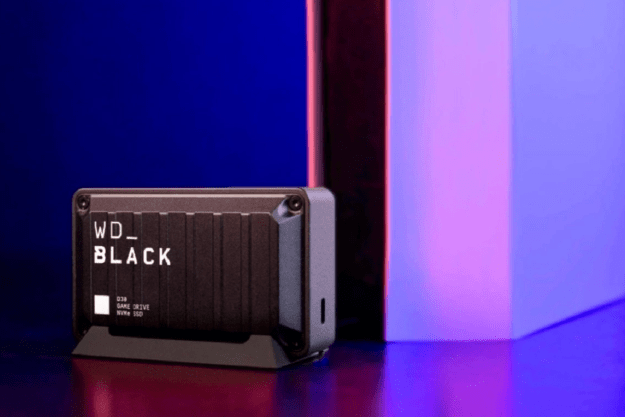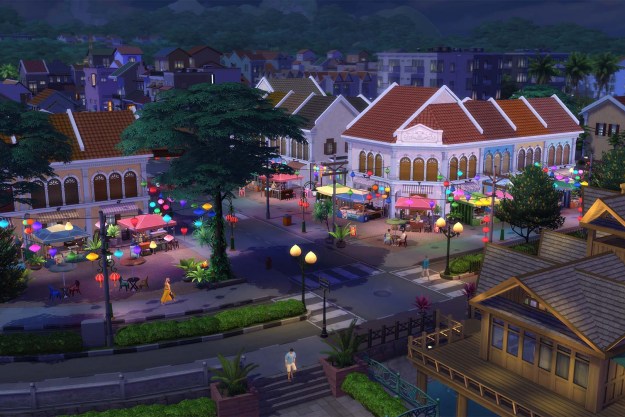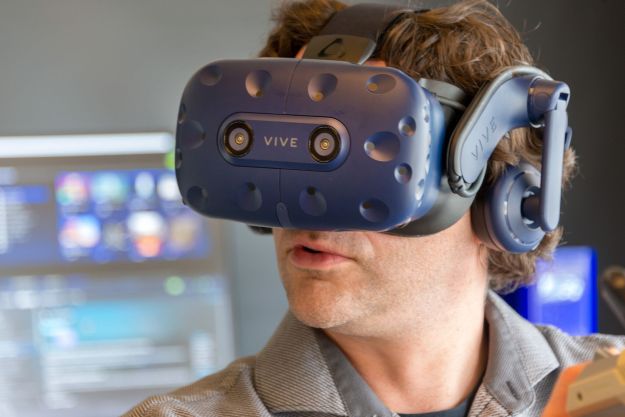“We’d rather have a smaller group of people we know we’ll get honest feedback from.”
Brian Parnell works on art and design for the game, while responding to emails and acting as a community manager. Tim Wiese started as an environment artist, and has transitioned into a technical artist and engineer as well.
Hung-Chien Liao programs — or as he says, “I make the magic happen.”
Together, the three developers have worked on titles spanning everything from free-to-play mobile and Facebook games to PlayStation VR. They bring in an enormous amount of experience, and a healthy dash of cynicism for the side of gaming that focuses on profits. It’s passion and momentum that’s led them here.
Finding sure footing
That experience has kept the team grounded in their expectations. “Initially we were more inspired by Dynasty Warriors, but without a dedicated animator, it was just going to be a bunch of lifeless enemies. Instead we decided that we should start by making it fun with just one enemy,” Parnell told Digital Trends.

From that initial concept, the team crafted a trailer, mostly just to gauge interest. Taking the leap of faith and showing that trailer to the world wasn’t an easy decision. “When I went to post the video, my wife was ready to console me. We had hoped for a few thousand views.”
Instead, the video garnered almost 750,000. Parnell realized he needed to leave his current job and tackle Prey for the Gods full-time.
Keeping control
Coming from medium and large-sized studios means the team is acutely aware of its limitations. Where other Kickstarter projects spread wide and reach for the stars, No Matter is keeping Prey for the God’s initial release realistic.
“It was some of the most fun we’ve had together in a game.”
“We know that with just the three of us, we can definitely finish five bosses before release.” That’s still bound to be a satisfying amount of content for a $15 game, especially considering the scale of not just the bosses, but the harsh world that surrounds them. “We played DayZ together and just started, lost on an island. Eventually we found each other, got in a car, and rode around together getting into trouble. It was some of the most fun we’ve had together in a game.” The zombie survival game’s influence is clear as you smash crates and gather supplies, deciding how best to use them at the safety of the campfire.
The team wants to create a game with big moments. The way they describe the gameplay loop reminds us of titles like Faster than Light or Binding of Isaac. Set off into the game with nothing but a dagger at your side, find what you can, die violently, and try again later.
Listening to feedback
Kickstarter can be an invaluable source of information for customer feedback, but it’s a dual-edged sword. Backers have already taken to the comments section on the Kickstarter to request radical features like completely different worlds and protagonists, something the team at No Matter simply won’t have time to consider.
Hands on: Prey for the Gods is a mystical arctic survival game you’ll want to Kickstart
They’ve also heard a lot from backers about the possible platforms. “The Linux users have been very vocal,” Chien shared, “as have the console players.” One of the stretch goals involves porting the game to PlayStation and Xbox, but that won’t happen until after the PC launch. It’s not about PC favoritism, it’s about ease of distribution and, once again, limiting scope.
It’s also one of the reasons the group hasn’t shared a demo with the community at large yet. Apart from trying to troubleshoot issues across a wider variety of systems, it’s just not a useful metric for users to evaluate the game this early in the process. “We’d rather have a smaller group of people we know we’ll get honest feedback from. We know from experience that demos can do more harm than good.”
Conclusion
If there’s one thing that stands out from our meeting with No Matter Studios, it’s just how acutely aware of their own strengths and weaknesses the team is. They know that they aren’t the best at animation and level design, so if all goes well with the Kickstarter, they may be looking to bolster those departments.
Whether the game will succeed depends on a lot of factors outside of No Matter’s control. Kickstarted games like Mighty No 9 have faced delays and disappointments, and it’s definitely affected player’s willingness to invest.
The team is also honest about what might happen once the game is out. “People think if we don’t reach those stretch goals we won’t add the extra bosses, or console support. That’s just not the case.” Parnell laughs off the idea. “If the game is successful, and people are enjoying it, we’ll make a ton of content for it, and we want that, obviously.”






